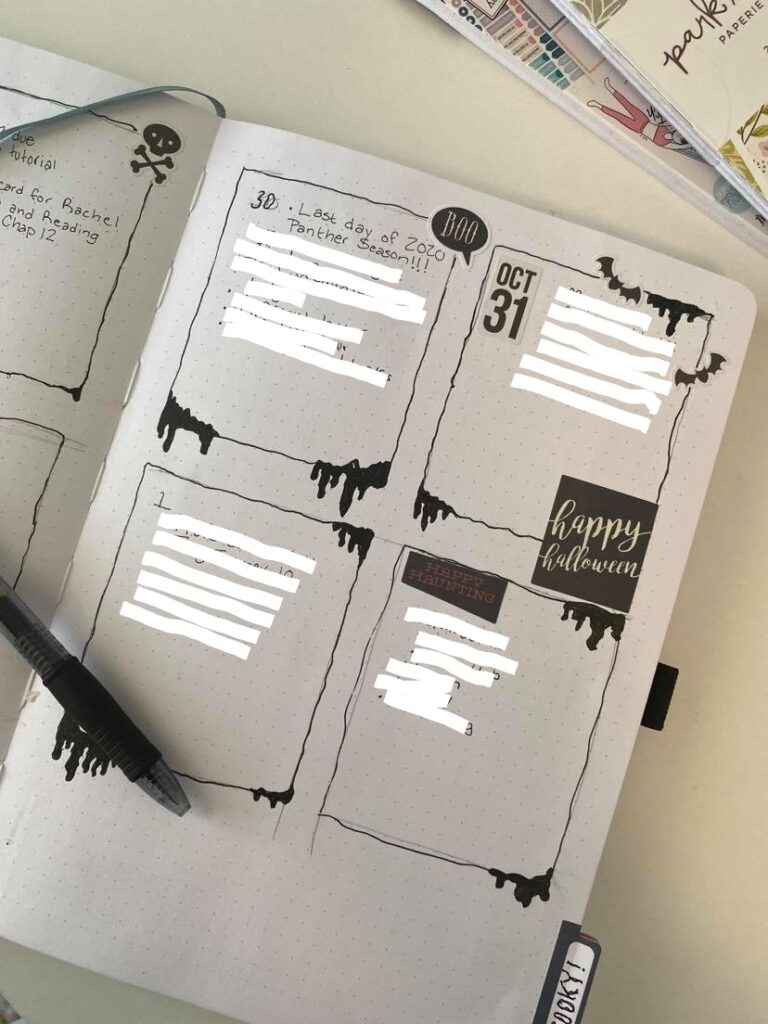College is stressful. We all know this. We constantly have new assignments and tasks, tests to study for, practices to go to. Getting in control of our habits and our daily routines can have a huge impact on our quality of life. Welcome to GYST. It’s time to Get Your Stuff Together. This short series of articles will focus on time management and productivity, mental health and stress, and self-care and emotional health. In this series, we are going to talk about the practical ways you can realistically and practically improve your daily life, mental health, and emotional health.

We’ve all been there. It’s 5 p.m. You have a do list with 17 things on it from this morning. You told yourself that you were going to get it all done today, but then, things happened. Your friend asked if you wanted to go get lunch together, you took a nap, there was an episode of something on Netflix that you wanted to watch. Before you know it, it’s 5 p.m., nothing on your to-do list is done, and now you’re either going to be up late trying to get as much done as possible or you’re just not going to get it all done.
Time management and getting things done on time is an important part of college. As much as we all wish that wasn’t the case, it’s preparing us for our future careers and jobs. (Oh no, you mean to tell me that all the teachers who have told me that being responsible is important were right?) Getting things done well and on time can remove a huge amount of stress from our lives. In this article, we’re going to look at some strategies we can implement to do just that.
How to Get Your Stuff Together and Get More Things Done
- Set Self Rules (right now!)
- Use an MIT system (every day)
- Ditch the To-Do List (kinda)
Set Self-Rules
Implementing rules might seem like the farthest thing from fun that you can think of, but there are proven benefits to setting rules for yourself and following them. I’m not talking about rules like “go to the gym” or “drink more water.” Those are more goals than actual rules, and they won’t help you actually get things done. Matt D’Avella, a minimalist film director, podcaster, and Youtuber, created a rule for himself to make himself go to the gym, and it worked. The Two Day Rule meant that he couldn’t take more than one day off from the gym back-to-back. If he skipped Wednesday, he had to go on Thursday. No questions asked. For a student at Maryville, this might look like setting a two-day rule on sleeping in or getting to bed on time. Drinking enough water, going to the gym, or spending a set amount of time doing homework each day are also great options. Setting productivity rules can help you create a system of responsibility and self-management. They might not sound glamorous and exciting, but they work. And hey, isn’t that the goal here?
Set MIT’s
Most of us use to-do lists to keep track of everything we have…well, to do. Here’s the thing though, how often do you look at your to-do list of 17 things and go take a nap or watch Netflix? It’s just too easy to get overwhelmed by all of the things we have to get done. Even when we’re motivated to work on that list, there’s no way we can finish it. Sorry, brain, no dopamine for you today, we didn’t finish all 149 things we had to do.
Humans have something called “The Planning Fallacy.” The Planning Fallacy is where humans underestimate the amount of time a task will take and show a clear optimism bias to how much we can realistically do in a day. In simpler terms, we assume that the things on our list will take less time than they will, so we plan on doing an unrealistic amount of work in a day. Again, this isn’t great for the dopamine levels in our chemically-dependent brains that tell us that life is boring when we don’t have any dopamine in the immediate vicinity.
The solution to this is minimalistic. Literally, by definition. Instead of having literally every possible thing you need to get done on your to-do list, minimize that crap down to 3 things each day. Three of the most important things that need to get done. Your MIT’s (Most Important Things) should be what gets done first. If your three MIT’s are homework assignments, doing dishes can wait (and so can Netflix, you’re not fooling anyone with having Netflix on “in the background” trick.) Sadia from Pick Up Limes discusses MIT’s in one of her videos: you can watch it here. Mackenzie Steiner, a graduate student at Maryville, said that keeping an MIT system helps her stay organized. “My to-do list was huge—I literally never got it completely done. Doing MIT’s changed how often I actually got everything done in a day.”
Setting goals that are doable will make you feel more accomplished and give you more dopamine throughout the day.
Ditch the To – Do List (Kinda)
Organization can make or break a student. Most Important Tasks are only useful if you know where you put that stupid sticky note that you wrote them down on! A simple list isn’t going to be much help to you if its so disorganized you can’t use it (or if you can’t find it.) There are many different organization systems out there today, but planners and journals are some of the most versatile and popular out there these days. Mary Boser, a third year communications major at Maryville, uses a planner every week to help her keep track of assignments: “Sunday night, I always take 15 minutes to sit down with my planner and look at my week. This way, I’m reminded of any upcoming commitments or assignments I have and make sure I’m prepared for them.” A popular alternative to having a planner is bullet journaling.
You may have heard of bullet journaling already, but let’s talk about it. Bullet journaling is an analog system—a way to keep things in line and organized in a physical (or digital) way. It’s for tracking habits, schedules, tasks that need to be complete. It’s meant to be a system that can be customized—to be all things to all people. You can learn more from the founder of the bullet journal system here. It can be complicated and beautiful like AmandaRachLee, or simple and powerfully effective like Nathaniel Drew. No matter how you choose to implement the system, it might be the tool that you’ve needed to get and stay organized and productive.

Your Next Steps
College is stressful, but it doesn’t necessarily have to be. By planning ahead either with a planner or a bullet journal, condensing your to-do list into manageable MIT’s, and setting some self-rules to keep everything in check, you can manage your time effectively and efficiently. By doing this, you can start to minimize stress and have more time for the fun things.
